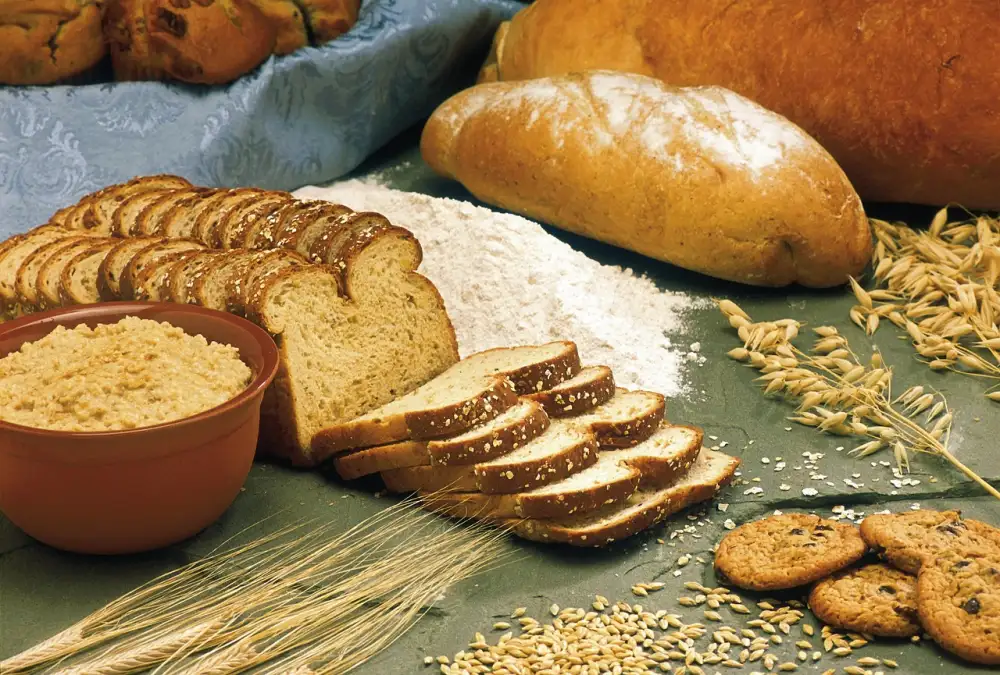Soft and Savory: Discover the Perfect Soft Foods to Eat for Dental Health and Swallowing Ease

- Benefits of Soft Foods for Dental Health
- Soft Foods for People with Dental Issues
- Mashed Potatoes
- Yogurt
- Scrambled Eggs
- Smoothies
- Oatmeal
- Soft Foods for People with Swallowing Difficulties
- Soups and Broths
- Pureed Vegetables
- Cottage Cheese
- Applesauce
- Pudding
- Tips for Preparing and Enjoying Soft Foods
Soft foods are a versatile and delicious option for those looking to maintain dental health or who have difficulty swallowing. These foods are easy to chew and swallow, making them ideal for individuals with dental issues or swallowing difficulties. Whether you're recovering from oral surgery, experiencing tooth sensitivity, or simply want to explore new culinary options, incorporating soft foods into your diet can be both beneficial and enjoyable. In this article, we will explore the benefits of soft foods for dental health, as well as provide a variety of tasty options for both dental issues and swallowing difficulties. So let's dive in and discover the perfect soft foods to elevate your culinary skills and love for food!
Benefits of Soft Foods for Dental Health
Soft foods offer numerous benefits for dental health. Firstly, they are easy to chew and require minimal effort, reducing the risk of damaging teeth or aggravating existing dental issues. Secondly, soft foods are gentle on sensitive gums and can provide relief from discomfort caused by toothaches or gum inflammation. Additionally, these foods are less likely to get stuck in between teeth or cause plaque buildup, promoting better oral hygiene. By incorporating soft foods into your diet, you can maintain good dental health while still enjoying delicious meals.
Soft Foods for People with Dental Issues
For individuals with dental issues, consuming soft foods can be a game-changer. These foods are not only gentle on the teeth but also provide essential nutrients for overall dental health. Here are some top choices:
a. Mashed Potatoes: Creamy and smooth, mashed potatoes are easy to chew and swallow. They are also rich in vitamins and minerals that promote healthy gums.
b. Yogurt: Packed with calcium and protein, yogurt is not only soft but also beneficial for strengthening teeth and bones. Opt for plain or low-sugar varieties to avoid any potential harm to dental health.
c. Scrambled Eggs: Soft and fluffy, scrambled eggs are a great source of protein that is easy on the teeth. They can be seasoned with herbs or spices for added flavor.
d. Smoothies: Blending fruits, vegetables, and yogurt together creates a nutrient-packed drink that requires minimal chewing. Smoothies can be customized with various ingredients to suit individual preferences.
e. Oatmeal: Cooked oatmeal is not only soft but also high in fiber, which aids digestion and promotes oral health. Add fruits or nuts for extra texture and flavor.
By incorporating these soft foods into their diet, individuals with dental issues can maintain proper nutrition while minimizing discomfort during mealtime.
Mashed Potatoes
Mashed potatoes are a classic soft food option that is not only delicious but also easy to prepare. They provide a smooth and creamy texture, making them perfect for individuals with dental issues or those who have difficulty swallowing. Mashing the potatoes removes any hard or lumpy bits, ensuring a comfortable eating experience. Additionally, mashed potatoes are rich in nutrients such as potassium and vitamin C, which are essential for maintaining good dental health. Whether enjoyed plain or with added toppings like butter or gravy, mashed potatoes are a versatile and comforting choice for anyone seeking soft and savory options.
Yogurt
Yogurt is not only a delicious and creamy treat, but it also provides numerous benefits for dental health. This soft food is rich in calcium and protein, which are essential for maintaining strong teeth and gums. The probiotics found in yogurt can also help promote good oral health by reducing harmful bacteria in the mouth.
For individuals with dental issues such as tooth sensitivity or gum inflammation, yogurt can be a soothing and gentle option. Its smooth texture makes it easy to eat without causing discomfort. Additionally, yogurt's cool temperature can provide relief for those experiencing oral pain or irritation.
When choosing yogurt for dental health, opt for plain varieties without added sugars or artificial flavors. These additives can contribute to tooth decay and other oral problems. Instead, sweeten your yogurt naturally with fresh fruits or a drizzle of honey.
Incorporating yogurt into your daily diet is simple. Enjoy it on its own as a snack, or use it as a base for smoothies and parfaits. You can also add it to soups or sauces as a healthy alternative to heavy cream.
Remember to practice good oral hygiene even when consuming soft foods like yogurt. Brushing your teeth after eating will help remove any lingering sugars or acids that could harm your teeth. By incorporating yogurt into your diet, you can enjoy its many benefits for dental health while indulging in a tasty treat.
Scrambled Eggs
Scrambled eggs are a versatile and nutritious soft food option that is easy to prepare and gentle on the teeth. They are packed with protein, vitamins, and minerals, making them an excellent choice for individuals with dental issues.
To make scrambled eggs, simply crack a few eggs into a bowl and whisk them until well beaten. Heat a non-stick pan over medium heat and add a small amount of butter or oil. Pour the beaten eggs into the pan and gently stir them with a spatula until they start to form curds.
Continue stirring the eggs until they reach your desired level of doneness. For those with dental issues, it's best to cook the scrambled eggs until they are soft and moist, as this makes them easier to chew and swallow.
Scrambled eggs can be enjoyed on their own or paired with other soft foods such as mashed avocado or cottage cheese for added flavor and texture. They can also be seasoned with herbs, spices, or grated cheese to enhance their taste.
Not only are scrambled eggs delicious and easy to eat, but they also provide essential nutrients like protein, which is crucial for maintaining muscle strength. Additionally, they contain choline, which supports brain health.
Whether you're recovering from dental work or simply looking for a soft food option that is both nutritious and satisfying, scrambled eggs are a fantastic choice. So whip up some fluffy scrambled eggs today and enjoy their comforting taste while taking care of your dental health.
Smoothies
Smoothies are not only delicious but also a great option for those with dental issues. They provide a convenient way to consume a variety of nutrients in an easily digestible form. The smooth texture of these blended beverages makes them gentle on the teeth and gums, reducing the risk of discomfort or damage.
To make a nutritious smoothie, start with a base of fruits or vegetables. Bananas, berries, spinach, and avocados are excellent choices as they blend well and offer numerous health benefits. Add some liquid such as milk, yogurt, or coconut water to achieve the desired consistency.
For added nutrition, consider incorporating ingredients like protein powder, nut butter, chia seeds, or flaxseeds. These will not only enhance the taste but also provide essential nutrients such as protein and omega-3 fatty acids.
To further boost the nutritional value of your smoothie, you can add supplements like vitamins or minerals. However, it is always recommended to consult with a healthcare professional before adding any supplements to your diet.
Smoothies can be enjoyed at any time of the day - as a refreshing breakfast option or as a snack between meals. They are versatile and can be customized according to personal preferences and dietary needs.
Remember to sip your smoothie slowly and savor each mouthful. This will not only enhance your enjoyment but also aid in digestion. Additionally, using a straw can help minimize contact between the smoothie and your teeth.
Incorporating smoothies into your diet is an easy way to ensure you're getting vital nutrients while being gentle on your teeth. So grab your blender and start experimenting with different flavor combinations to create delicious and tooth-friendly smoothies that will leave you feeling satisfied and nourished.
Oatmeal
Oatmeal is not only a delicious and comforting breakfast option, but it is also an excellent choice for those with dental issues. This soft and easily chewable food is gentle on the teeth and gums, making it perfect for individuals who may be experiencing tooth sensitivity or pain.
Not only is oatmeal easy to eat, but it also offers a range of health benefits. It is packed with fiber, which aids in digestion and helps maintain a healthy weight. Oatmeal is also rich in vitamins and minerals such as iron, magnesium, and zinc, which are essential for overall dental health.
To make oatmeal even more enjoyable and nutritious, you can add toppings such as sliced bananas, berries, or a sprinkle of cinnamon. These additions not only enhance the flavor but also provide additional nutrients.
Whether you prefer traditional rolled oats or quick-cooking oats, preparing oatmeal is quick and simple. Just follow the instructions on the packaging to cook it on the stovetop or use the microwave for a faster option. You can adjust the consistency by adding more or less liquid to suit your preference.
Incorporating oatmeal into your diet can be a tasty way to ensure you are getting the necessary nutrients while taking care of your dental health. So next time you're looking for a soft and satisfying meal, consider starting your day with a warm bowl of oatmeal.
Soft Foods for People with Swallowing Difficulties
For individuals with swallowing difficulties, consuming soft foods can be a game-changer. These foods are not only easy to chew but also glide down the throat effortlessly. Here are some great options:
a. Soups and Broths: Warm and comforting, soups and broths are excellent choices for those with swallowing difficulties. Opt for smooth varieties without chunks or large pieces of meat.
b. Pureed Vegetables: Pureeing vegetables like carrots, peas, or spinach can provide essential nutrients while being gentle on the throat. Add a little broth or sauce to enhance the flavor.
c. Cottage Cheese: Soft and creamy, cottage cheese is an excellent source of protein and calcium. It can be easily swallowed without much effort.
d. Applesauce: This classic soft food is not just for kids! Applesauce is smooth and easy to swallow, making it an ideal choice for those with swallowing difficulties.
e. Pudding: Indulge your sweet tooth with pudding! Its silky texture makes it effortless to swallow while still satisfying your dessert cravings.
Remember, when preparing soft foods for individuals with swallowing difficulties, ensure they have a smooth consistency and are free from any hard or crunchy bits that could pose a choking hazard.
Soups and Broths
Soups and broths are excellent options for those with swallowing difficulties. These soft and liquid-based foods provide nourishment and hydration while being easy to swallow. Opt for smooth and creamy soups such as tomato bisque or butternut squash soup. Broths made from chicken or beef can also be enjoyed, providing a flavorful and comforting option. Ensure that the soups and broths are not too hot to avoid any burns or discomfort. Adding cooked vegetables or pureed meats can further enhance the nutritional value of these soft foods.
Pureed Vegetables
Pureed vegetables are an excellent option for individuals with swallowing difficulties. By blending cooked vegetables until smooth, they become easier to swallow and digest. Pureed vegetables retain their nutritional value, providing essential vitamins and minerals. Carrots, peas, broccoli, and cauliflower are popular choices for pureeing. Adding a little broth or cream can enhance the flavor and texture. Experimenting with different combinations of vegetables can create delicious and nourishing purees that make mealtime enjoyable and nutritious.
Cottage Cheese
Cottage cheese is a versatile and nutritious soft food option for individuals with dental issues or swallowing difficulties. It is high in protein, calcium, and vitamin D, making it beneficial for maintaining strong teeth and bones. Cottage cheese has a smooth and creamy texture that is easy to chew and swallow, making it an ideal choice for those who struggle with solid foods. It can be enjoyed on its own or mixed with fruits, vegetables, or herbs for added flavor and variety. Incorporating cottage cheese into your diet can provide you with the necessary nutrients while still being gentle on your teeth and throat.
Applesauce
Applesauce is a versatile and delicious soft food that is perfect for individuals with dental issues or swallowing difficulties. Made from cooked and pureed apples, it provides a smooth texture that is easy to eat and swallow.
One of the main benefits of applesauce is its gentle consistency, which makes it ideal for those with sensitive teeth or gums. It requires minimal chewing, reducing the risk of discomfort or pain while eating. Additionally, applesauce contains natural sugars that can provide a burst of energy without putting excessive strain on the teeth.
For individuals with swallowing difficulties, applesauce is an excellent choice as it easily slides down the throat without causing any discomfort. Its smooth texture eliminates the need for extensive chewing and allows for effortless swallowing.
To enjoy applesauce, it can be served chilled or at room temperature. It can be eaten on its own as a snack or used as a topping for pancakes, oatmeal, or yogurt. For added flavor and variety, consider adding cinnamon or nutmeg to enhance the taste.
When purchasing applesauce, opt for unsweetened varieties to avoid excess sugar intake. Alternatively, you can make your own homemade version by cooking peeled and sliced apples until they are soft and then blending them until smooth.
Incorporating applesauce into your diet not only provides relief for dental issues and swallowing difficulties but also offers essential nutrients found in apples such as fiber and vitamin C. So whether you're looking for a nutritious snack or an easy-to-eat option, don't forget to include this delightful soft food in your meal plan.
Pudding
Pudding is a delightful and comforting soft food option that is perfect for individuals with swallowing difficulties. Its smooth and creamy texture makes it easy to swallow without any discomfort. Pudding also provides a delicious treat for those who have dental issues, as it requires minimal chewing.
One of the great things about pudding is its versatility. It comes in various flavors such as chocolate, vanilla, butterscotch, and more, allowing you to choose your favorite. Additionally, you can add toppings like whipped cream or fresh fruit to enhance the taste and nutritional value.
To make homemade pudding, all you need is a few simple ingredients like milk, sugar, cornstarch, and flavorings. You can control the sweetness by adjusting the amount of sugar according to your preference. Simply heat the mixture on the stove until it thickens, then let it cool in the refrigerator until set.
Store-bought pudding cups are also readily available if you prefer a quick and convenient option. They come in individual servings, making them perfect for on-the-go or portion control.
Whether enjoyed as a dessert or a snack, pudding provides a satisfying treat while being gentle on your teeth and easy to swallow. So indulge in this delectable soft food option and savor its creamy goodness while taking care of your dental health and swallowing ease.
Tips for Preparing and Enjoying Soft Foods
1. Experiment with flavors: Don't be afraid to add herbs, spices, or sauces to your soft foods to enhance the taste. This will make your meals more enjoyable and satisfying.
2. Use different textures: While soft foods are easy to chew and swallow, it's important to vary the textures to keep your palate interested. Add crunchy toppings like nuts or seeds to your yogurt or mashed potatoes for a delightful contrast.
3. Get creative with presentation: Just because you're eating soft foods doesn't mean they have to look boring. Use cookie cutters or molds to shape your pureed vegetables into fun shapes or garnish soups with colorful herbs for an appealing visual appeal.
4. Opt for nutrient-rich options: Choose soft foods that are packed with nutrients such as protein, vitamins, and minerals. Incorporate ingredients like avocado, spinach, or tofu into your smoothies or scrambled eggs for an added nutritional boost.
5. Don't forget about hydration: Soft foods can sometimes lack moisture, so it's important to stay hydrated. Include broths, juices, or water-based smoothies in your diet to ensure you're getting enough fluids throughout the day.
6. Consult a healthcare professional: If you have specific dietary restrictions due to dental issues or swallowing difficulties, it's always best to consult a healthcare professional or registered dietitian who can provide personalized advice and guidance.
By following these tips, you can make the most out of your soft food journey while still enjoying delicious and nutritious meals!
Incorporating soft foods into a healthy diet can be beneficial for both dental health and swallowing ease. Whether you have dental issues or difficulty swallowing, there are a variety of delicious options to choose from. From mashed potatoes to soups and broths, these soft foods provide the necessary nutrients while being gentle on your teeth and easy to swallow. Remember to consult with your dentist or healthcare provider for personalized recommendations. So go ahead, explore the world of soft foods and elevate your culinary skills while taking care of your oral health!
Published: 14. 01. 2024
Category: Health



